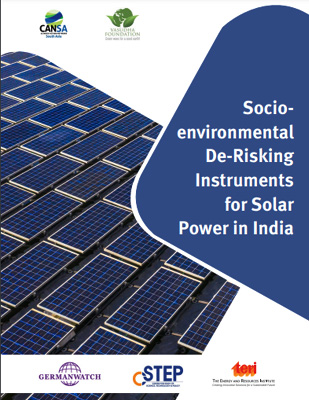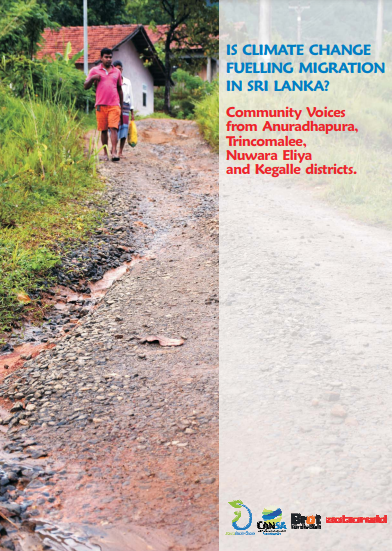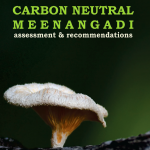Publications - Just transition
Socio Environmental De-Risking Instruments for Solar Power in India
India has an ambitious target of achieving 100 GW of solar-based electricity generation capacity by 2022. However, technical, financial, and socio-environmental risks hinder large-scale investment in solar energy in India. In order to reduce or eliminate the actual risks and risk perception of investors, India needs investment de-risking of its solar energy sector. […]

Gender and Child Inclusion in Policies on Climate Change in South Asia
Climate change is a natural process, but its exacerbation in recent decades due to anthropogenic activities has created severe problems and challenges. Though children and women contribute little to the causes of climate change, they are the ones hardest hit by it. Poor governance with respect to climate risks and lack of policies […]

Gender and Child Inclusion in Policies on climate Change in Southeast Asia
This report provides a situational analysis on climate action relating to women and children in Southeast Asia. Existing Association of Southeast Asian Nations (ASEAN) climate policies, on a regional level, are generally gender-responsive, framed within a broader framework of sustainable development, with a positive trend towards gender-transformative action. While Nationally Determined Contributions amongst […]

HCN Briefing: A Just Energy Transition for a healthy fossil fuel free world
A just energy transition is increasingly viewed as important in confronting the energy and climate crises. The G7, along with middle-income partners including India, Indonesia, and South Africa, is looking to establish Just Energy Transition Partnerships (JETPs) to support coal phase-out1. Just energy transition is also a core demand among those calling for […]

Policy Brief – Enhance Climate Ambition and Global Stocktake with Local Sustainable Energy
A large number of local, sustainable energy solutions are important climate solutions. Including them fully in climate plans will make it easier to reach higher ambitions in climate mitigation and adaptation. It is also essential to include the local solutions when assessing progress in climate action with the Global Stocktake (GST), in order […]

CARE-Gender Quality and NDCs
The Paris Agreement on Climate Change requires Parties to submit new or updated national climate action plans, the so-called Nationally Determined Contributions (NDCs) every five years. Five years after its adoption, many countries are now in the process of revising or updating their NDCs which should have been delivered in 2020. While climate […]

No Future for Fossil Fuels
The success of human societies depends intimately on the sustainable balance between the living components of natural and managed systems. This has raised the demand for the design of climate policy to promote sustainable consumption and production that will be influenced by how countries perceive climate induced uncertainties and policymakers prioritize national risk. […]

Is Climate Change Fueling Migration in Sri Lanka
in Sri Lanka may lead to higher temperatures, storm surges and increased rainfall variability. These in turn impact agriculture and food security, water resources and human health. Extreme weather events and sea level rise lead to coastal erosion and loss of land, threatening livelihoods and forcing migration. “Is Climate Change Fueling Migration in Sri Lanka” report’s primary objective […]

SLYCAN Trust: Research Paper on NDC on Renewable Energy in Sri Lanka
Energy sector plays a key role in a country’s development. In a region like South Asia where development is key, the resources for energy is vital to be utilized in a sustainable manner, while the countries play a role in cooperation for technology and resource sharing. Many initiatives have been taken at the […]

Carbon Neutral Meenangadi – Assessment and Recommendations
The purpose of this project is to propose sector-wise adaptation and mitigation strategies to develop Meenangadi Panchayat of Wayanad district in Kerala as a ‘Carbon Neutral Panchayat’ by carrying out a carbon emission and sequestration analysis in the sectors of Transportation, Energy, Waste, Livestock and AFOLU (Agriculture, Forests and Other Land Use). The […]





